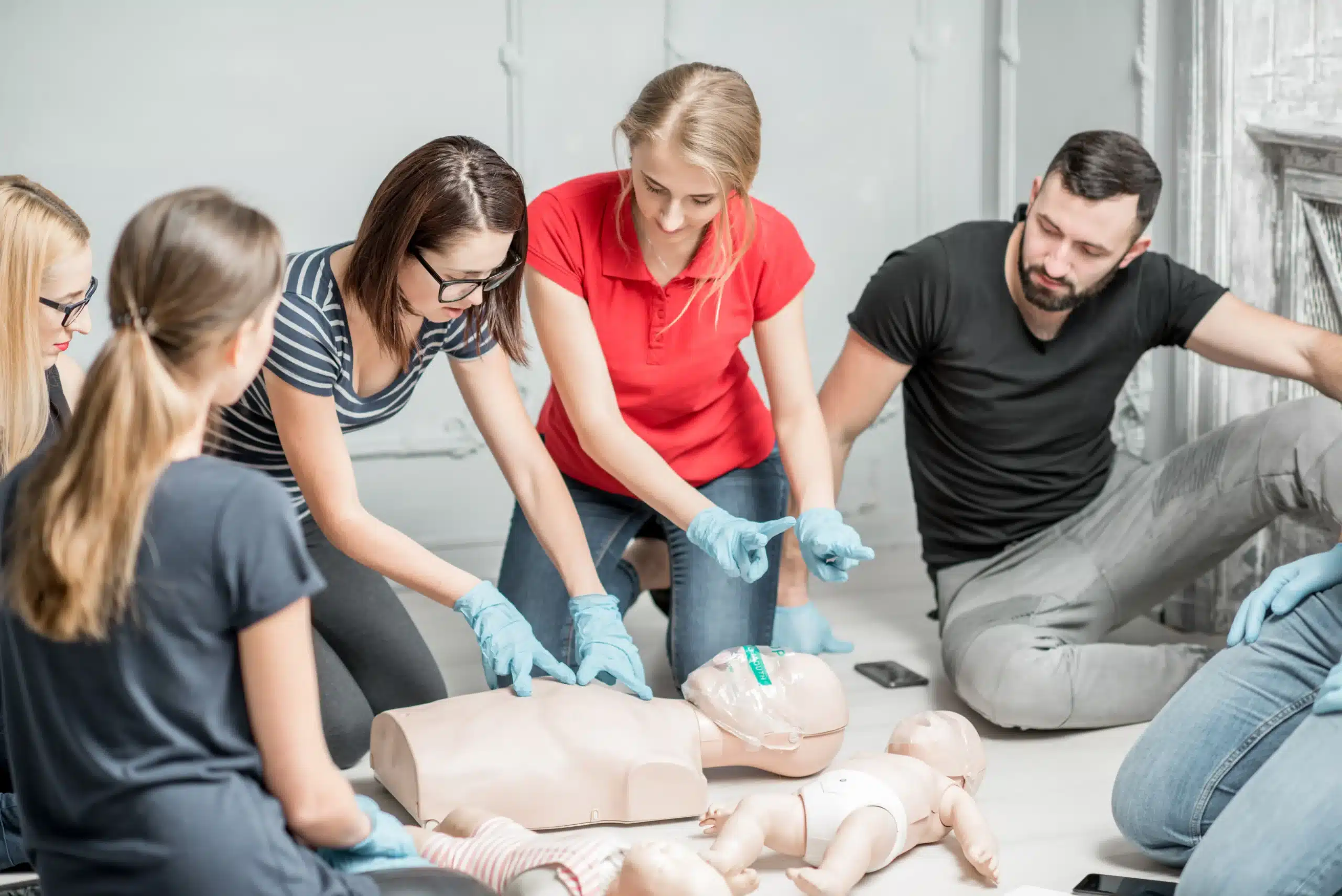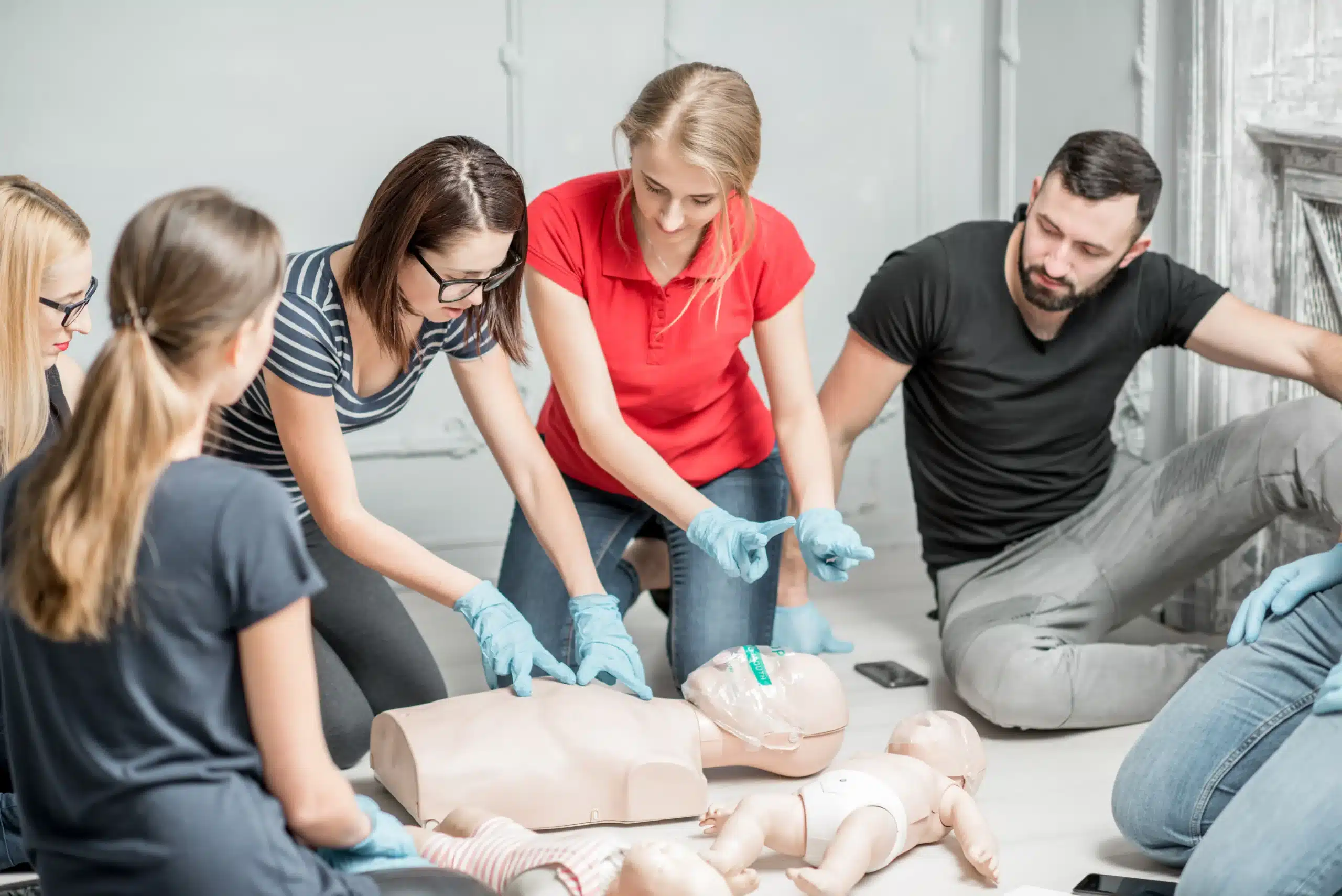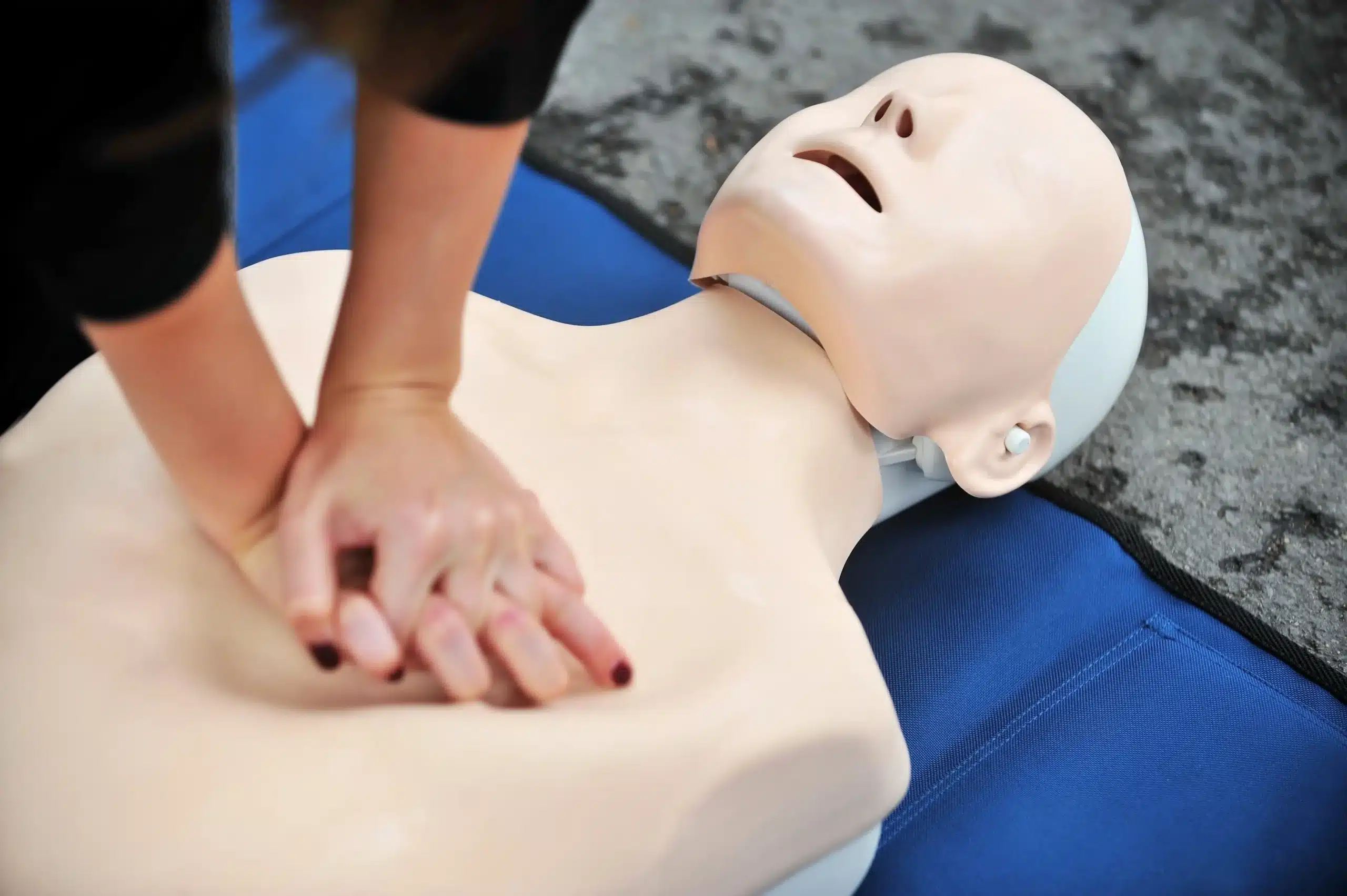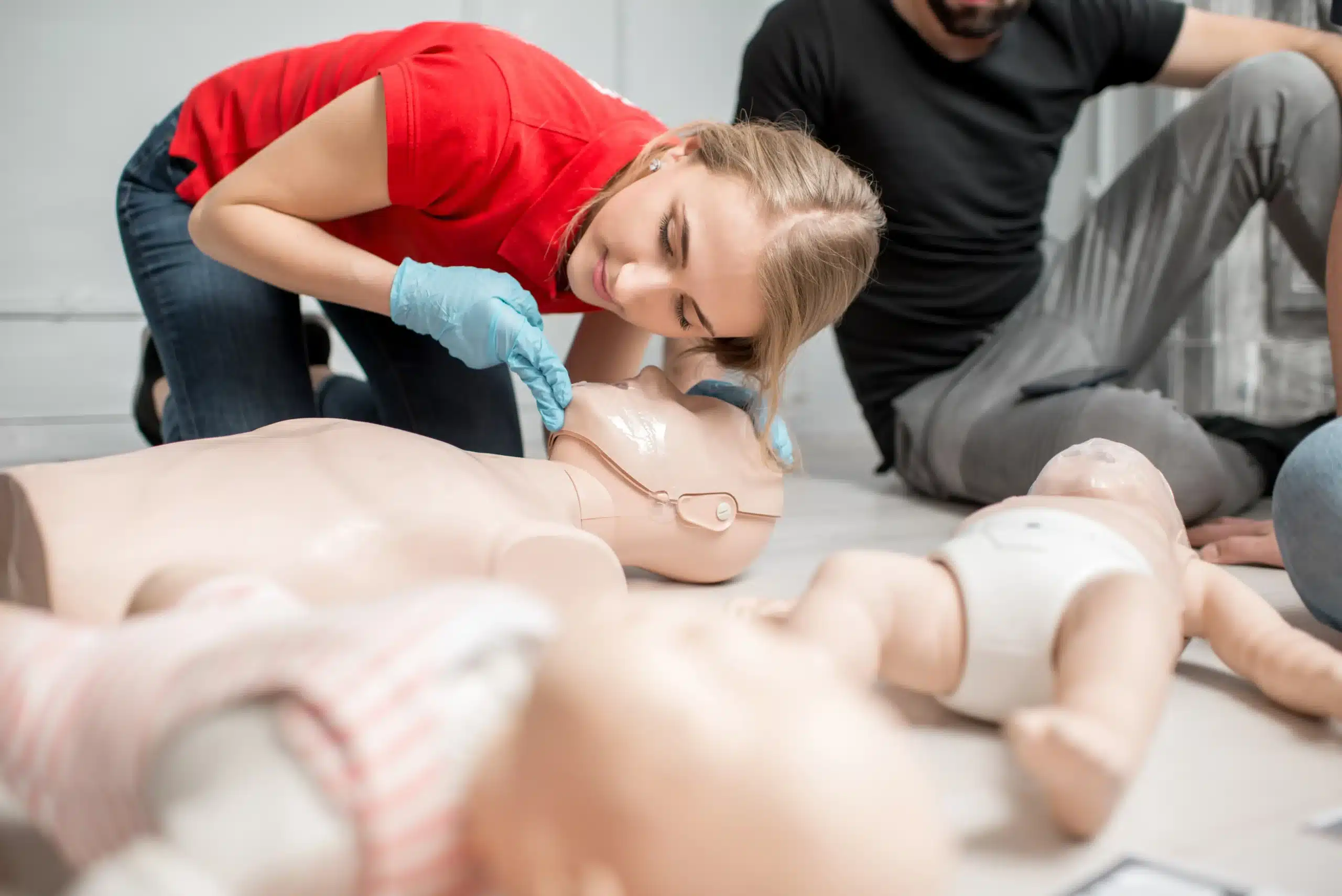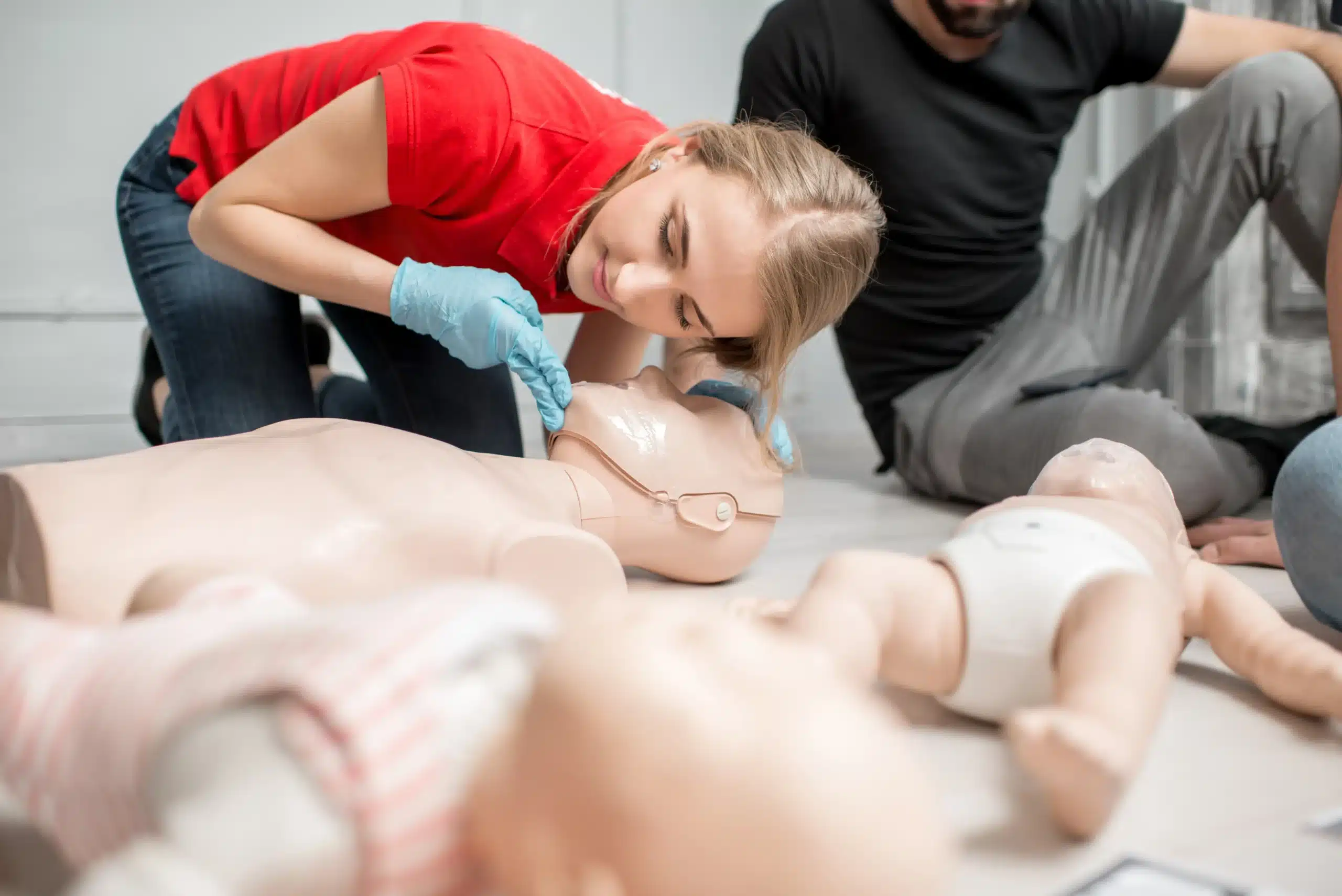Working in healthcare often means juggling long hours with ongoing training requirements. If you’re looking for a convenient way to earn or renew your PALS certification, HeartCode PALS in Rohnert Park might be the perfect solution. This blended learning program offers the best of both worlds: the flexibility of online learning combined with the hands-on experience of in-person skills practice. This comprehensive guide explores the benefits of HeartCode PALS, compares it to traditional PALS courses, outlines the costs involved, and provides resources for finding training centers in Rohnert Park. Whether you’re a nurse, doctor, EMT, or other healthcare provider, this article will help you determine if HeartCode PALS is the right fit for your needs.
Key Takeaways
- HeartCode PALS fits your busy life: The blended learning format lets you complete online modules at your own pace, then demonstrate your skills in a hands-on session.
- Prepare for pediatric emergencies: The program provides comprehensive training in managing pediatric emergencies like respiratory distress, shock, and cardiopulmonary arrest, emphasizing both individual skills and teamwork.
- Stay current with PALS: Your certification lasts two years. Renewing ensures you’re up-to-date on the latest guidelines and best practices for providing high-quality pediatric care.
What is HeartCode PALS?
HeartCode PALS is the American Heart Association’s (AHA) blended learning program for Pediatric Advanced Life Support (PALS) certification. This format combines online modules with a separate in-person skills session, giving you the flexibility to learn the material at your own speed before demonstrating your skills. It’s a convenient option for busy healthcare professionals juggling work and training. The program focuses on building strong team dynamics and high-quality individual skills to prepare you for pediatric emergencies like respiratory distress, shock, and cardiopulmonary arrest. For those in Rohnert Park, Santa Rosa, or Windsor, HeartCode PALS offers a convenient path to PALS certification. You can find additional information on HeartCode PALS through providers like Petaluma CPR Classes and Vive CPR.
What Differentiates HeartCode PALS from Traditional PALS?
HeartCode PALS and traditional PALS both prepare you to respond to pediatric emergencies, but their learning formats differ. Understanding these differences can help you choose the best fit for your learning style and schedule.
Blended Learning
HeartCode PALS uses a blended learning approach, combining online modules with an in-person skills session. This differs from traditional PALS training, which takes place entirely in person. The blended format gives you the flexibility to learn the material at your own pace online, then demonstrate your skills in a hands-on session with an AHA instructor. This combination allows you to digest the information thoroughly before practicing your skills.
Self-Paced Online Learning
A key advantage of HeartCode PALS is its flexibility. The online portion lets you learn at your own speed, fitting the training around your schedule. This self-paced learning makes HeartCode PALS a convenient option for busy healthcare providers balancing work, family, and other commitments. You can study in short bursts or dedicate longer blocks of time—the choice is yours.
Hands-On Skills Practice
While the online modules build a foundation in pediatric advanced life support principles, HeartCode PALS also emphasizes hands-on practice. After completing the online portion, you’ll attend an in-person skills session with an American Heart Association instructor. This session lets you apply your knowledge, practice techniques, and receive feedback. This blend of online learning and hands-on practice ensures you’re ready to respond confidently in real-world emergencies.
HeartCode PALS Costs in Rohnert Park
Understanding the investment for your PALS certification is important. Let’s break down the costs associated with the HeartCode PALS blended learning course in Rohnert Park.
Online Course Fee
The online portion of the HeartCode PALS course covers essential training in high-quality CPR, teamwork, and the management of respiratory distress, shock, and dysrhythmias. This self-paced online training costs $168.
In-Person Skills Session Cost
After completing the online modules, you’ll participate in a hands-on skills session. This crucial component allows you to practice and demonstrate your skills in a real-world environment under the guidance of an instructor. The in-person skills session costs $150.
Compare Prices with Traditional PALS
While HeartCode PALS offers a blended learning approach, traditional PALS courses typically combine online and in-person elements. Providers like Vive CPR offer both initial and renewal courses for Pediatric Advanced Life Support (PALS) certification. Comparing pricing between the two formats can help you choose the best fit for your learning style and budget. Often, the overall cost is similar, but the flexibility of HeartCode PALS can be a significant advantage. Check with your chosen provider, like Safety Training Seminars, for the most up-to-date pricing on traditional PALS courses.
Find HeartCode PALS Courses in Rohnert Park
Finding the right HeartCode PALS course in Rohnert Park is easier than you think. With its blend of online learning and in-person skills sessions, this certification offers flexibility for busy professionals. Let’s explore how to locate a course that fits your schedule and learning style.
Local Training Centers
Rohnert Park is conveniently located near several training centers offering HeartCode PALS certification. These centers provide the required in-person skills sessions, giving you hands-on practice with AHA-certified instructors. Check with local hospitals, community colleges, and specialized training organizations for available courses.
Online Enrollment
The beauty of HeartCode PALS lies in its blended learning approach. You can complete the online portion of the course at your own pace, making it ideal for those juggling work and other commitments. Once you’ve finished the online modules, you’ll schedule an in-person skills session at a local training center. Many providers offer online enrollment, streamlining the registration process.
HeartCode PALS Providers in Rohnert Park
Several providers offer HeartCode PALS courses in and around Rohnert Park. Here are a couple of options:
Safety Training Seminars
Safety Training Seminars offers HeartCode PALS blended learning, combining online coursework with hands-on skills sessions led by American Heart Association instructors. They also provide various other safety training courses, including BLS, ACLS, and CPR. Their convenient location and commitment to quality instruction make them a popular choice for healthcare providers in the area.
Vive CPR
Vive CPR offers in-person PALS certification classes in the San Francisco Bay Area, including Rohnert Park. They focus on providing comprehensive training that meets the American Heart Association guidelines. Check their website for course schedules and availability.
Prerequisites for HeartCode PALS
Before you jump into HeartCode PALS, it’s important to understand the requirements. This will help you determine if the course is the right fit and ensure you’re prepared for a successful learning experience.
Required Healthcare Background
HeartCode PALS is designed for healthcare providers regularly encountering pediatric emergencies. This typically includes doctors, nurses, paramedics, respiratory therapists, and other professionals involved in pediatric advanced life support. This foundational knowledge is essential for grasping the course content and applying it effectively.
Pre-Course Self-Assessment
You’ll need to complete an online pre-course self-assessment before starting HeartCode PALS. This assessment gauges your existing knowledge of basic ECG interpretation, confirming you have the fundamental skills needed to benefit from the course material. Keep in mind, the self-assessment doesn’t teach ECG interpretation; it simply evaluates your current understanding. If you need a refresher, consider resources like this ECG interpretation guide beforehand.
Basic ECG Interpretation
Having a basic understanding of ECG interpretation is crucial for HeartCode PALS. This prerequisite ensures you can interpret heart rhythms and apply that knowledge to pediatric emergency situations. The pre-course self-assessment helps determine if your ECG interpretation skills are sufficient. You can find additional ECG learning resources online to prepare.
PALS Provider Manual/E-book
You’ll also need the PALS Provider Manual, available as a physical book or an e-book. This manual is a key resource throughout the course and beyond, providing essential information and guidelines for pediatric advanced life support. You can typically purchase the manual through the American Heart Association or your chosen course provider.
The HeartCode PALS Experience
The HeartCode PALS course blends online learning with hands-on skills practice. This approach allows you to learn at your own pace and then apply your knowledge in a real-world setting. Let’s break down each component:
Online Modules
HeartCode PALS begins with interactive online modules you can complete anywhere with an internet connection. These self-paced lessons cover essential PALS concepts and algorithms. You’ll work through case studies, watch videos, and test your knowledge with quizzes. This flexible format lets you fit the training around your schedule. For example, Safety Training Seminars offers convenient online PALS courses to accommodate busy professionals.
Interactive Simulations
The online portion of HeartCode PALS features realistic simulations of pediatric emergencies. These interactive scenarios challenge you to make critical decisions in a safe learning environment. You’ll apply your knowledge to assess, diagnose, and treat virtual patients, reinforcing the concepts learned in the online modules. This prepares you for the dynamic nature of real-world pediatric emergencies. Many providers, including Northstar First Response, utilize this simulation-based learning.
Skills Practice
After completing the online modules, you’ll attend an in-person skills session. This session provides hands-on practice with essential PALS techniques, including CPR, ventilation, and vascular access. You’ll work with realistic mannequins and equipment, allowing you to develop muscle memory and confidence in your abilities. This blended learning approach ensures you’re fully prepared to respond effectively in a real emergency. Vive CPR is one example of a provider offering this blended learning format.
AHA Instructor-Led Sessions
The in-person skills session is led by a certified American Heart Association instructor. These instructors provide expert guidance, feedback, and support as you practice your skills. They’ll answer your questions, clarify any confusion, and ensure you meet the AHA’s rigorous standards for PALS certification. Safety Training Seminars offers these instructor-led sessions, emphasizing quality and personalized attention.
Time Commitment and Flexibility
One of the biggest advantages of the PALS HeartCode blended learning format is its flexibility. It’s designed to fit your schedule, unlike traditional in-person classes. This approach lets you complete the coursework at your convenience, whether that’s early mornings, late nights, or weekends.
Online Component Duration
The online portion of the HeartCode PALS course typically takes between four and six hours to complete. Since it’s self-paced, you can spread this time out over days or weeks, depending on your availability. You can pause and resume the online modules as needed, fitting them into your busy schedule. This flexibility is especially helpful for healthcare professionals juggling work, family, and other commitments.
Skills Session Length
After finishing the online modules, you’ll attend an in-person skills session with an American Heart Association (AHA) instructor. This session typically lasts around two to three hours. During this time, you’ll practice the skills you learned online, receive personalized feedback from the instructor, and demonstrate competency in essential PALS techniques. Safety Training Seminars offers a variety of class times to accommodate different schedules.
Balance Learning with Work
The blended learning format of HeartCode PALS makes it much easier to balance training with work responsibilities. You can complete the online modules at your own pace, eliminating the need to take time off work for a full day of in-person training. This flexibility minimizes disruption to your work schedule and allows you to learn when it suits you best. Contact Safety Training Seminars to learn more about convenient scheduling options.
Benefits of HeartCode PALS
Choosing the right PALS course can make a real difference in your ability to respond effectively in pediatric emergencies. HeartCode PALS offers several key advantages that can significantly impact patient care and your professional development.
Improve Patient Outcomes
HeartCode PALS equips healthcare providers with the knowledge and skills to improve outcomes for young patients. The program focuses on recognizing and responding to life-threatening situations, such as respiratory distress, shock, and cardiopulmonary arrest. By emphasizing early intervention and effective treatment strategies, HeartCode PALS empowers providers to deliver high-quality care during critical moments. This focus on practical skills translates to better patient care and can save lives. The American Heart Association emphasizes this connection between training and positive patient outcomes. This specialized training provides healthcare professionals with the tools they need to make a real difference in pediatric care.
Enhance Teamwork
Effective teamwork is crucial in medical emergencies. HeartCode PALS incorporates team dynamics training throughout the course. You’ll learn to communicate clearly, coordinate efforts, and work together as a unit during high-pressure scenarios. This emphasis on collaboration improves the quality of care and creates a more supportive and efficient working environment. The blended learning format, combining online modules and in-person skills sessions, provides opportunities to practice these teamwork skills in realistic simulated scenarios. Vive CPR highlights the benefits of this blended learning approach for developing essential teamwork skills. This focus on collaboration prepares healthcare teams to function at their best during critical situations.
Build Confidence in Pediatric Emergencies
Facing a pediatric emergency can be stressful, but HeartCode PALS builds the confidence you need to respond effectively. The program’s comprehensive curriculum covers a wide range of pediatric emergencies, providing a deep understanding of the specific needs of infants and children. Through interactive simulations and hands-on practice, you’ll gain practical experience and develop the critical thinking skills necessary to make quick, informed decisions under pressure. This specialized training goes beyond basic CPR, giving you a focused skill set that improves your confidence when dealing with pediatric emergencies. Bay Area CPR discusses the importance of specialized pediatric training like PALS for developing confidence in these critical situations. This specialized knowledge empowers healthcare providers to act decisively and effectively when every second counts.
Maintain Your HeartCode PALS Certification
Keeping your PALS skills sharp is crucial for providing the best possible care. This section covers how to maintain your HeartCode PALS certification and stay on top of the latest guidelines.
Renewal Requirements
Your PALS certification is valid for two years. To continue practicing, you’ll need to renew before it expires. This ensures you’re always aligned with current pediatric advanced life support practices. Check with your certifying body or the American Heart Association for specific renewal requirements and courses.
Continuing Education
Continuing education is key to maintaining expertise. The AHA provides continuing education credits upon successful completion of the online portion of the HeartCode PALS course. These credits demonstrate your commitment to ongoing learning in pediatric care. Explore continuing education opportunities on the UnityPoint Health website for more information.
Stay Updated with AHA Guidelines
AHA guidelines are the gold standard for pediatric advanced life support. All PALS courses, including HeartCode PALS and traditional classroom courses, cover the same science-based skills and result in the same AHA PALS Course Completion Card. This ensures all certified professionals share the most current knowledge. Stay informed about the latest updates by visiting the AHA website for helpful resources.
HeartCode PALS: Common Misconceptions
It’s easy to get tripped up by some common misconceptions surrounding HeartCode PALS certification. Let’s clear those up.
Online vs. In-Person: Validity
One frequent question is whether online PALS courses are as valid as in-person classes. The answer is yes. The HeartCode PALS program, offered by Safety Training Seminars, follows American Heart Association guidelines and provides the same level of education as traditional in-person classes. The online portion lets you learn the material at your own pace, while the required in-person skills session ensures you can perform the necessary skills.
Who Needs PALS?
Another misconception is that PALS certification is only for doctors and nurses. While it’s crucial for these medical professionals, PALS certification benefits anyone who might encounter pediatric emergencies. This includes paramedics, respiratory therapists, emergency medical technicians, and even childcare providers. If you’re in a position where you might need to respond to a child in a medical crisis, having PALS training can make all the difference. Safety Training Seminars offers group discounts for organizations looking to certify multiple staff members.
Certification: Is it Permanent?
PALS certification isn’t permanent. Like many certifications in the healthcare field, it needs to be renewed every two years. This ensures providers stay up-to-date on the latest guidelines and best practices for pediatric advanced life support. Check with your employer or certifying body for specific renewal requirements.
Importance of Hands-On Practice
While the HeartCode PALS program offers flexibility with its online learning modules, it also emphasizes hands-on practice. After completing the online portion, you’ll participate in an instructor-led skills session. This combination of online learning and practical application is essential for mastering the skills needed to respond effectively in real-life pediatric emergencies. This blended learning approach ensures you not only understand the concepts but can also confidently perform the necessary procedures.
Related Articles
- HeartCode PALS Santa Rosa: Your Complete Guide – Santa Rosa CPR Classes
- PALS Certification in Santa Rosa: Your 2024 Guide – Santa Rosa CPR Classes
- AHA PALS Classes in Santa Rosa, CA – Santa Rosa CPR Classes
- ACLS Courses in Rohnert Park: Your Complete Guide – Santa Rosa CPR Classes
- CPR, BLS, ACLS, PALS, & First-aid Classes in Santa Rosa, CA
Frequently Asked Questions
Is HeartCode PALS right for me if I have a busy schedule? Absolutely! The blended learning format lets you complete the online modules at your own pace, fitting them around your work and personal commitments. You then schedule the in-person skills session separately, giving you control over your training timeline.
What if I don’t have a strong medical background? HeartCode PALS is designed for healthcare providers who regularly encounter pediatric emergencies. A foundational understanding of healthcare is essential for grasping the course content. If you’re unsure if your background is sufficient, it’s best to contact a course provider to discuss your specific situation.
What can I expect during the in-person skills session? The in-person skills session focuses on hands-on practice. You’ll work with an AHA instructor and realistic mannequins to practice essential PALS techniques like CPR, ventilation, and vascular access. The instructor provides feedback and guidance to ensure you meet the AHA’s standards.
How long does it take to complete the entire HeartCode PALS course? The online modules typically take between four and six hours to complete, but you can work through them at your own speed. The in-person skills session usually lasts two to three hours.
How do I renew my PALS certification after it expires? PALS certification is valid for two years. You’ll need to take a renewal course before it expires. Check with your certifying body or the American Heart Association for specific renewal requirements and available courses. They can guide you through the process and ensure you stay up-to-date with the latest guidelines.

